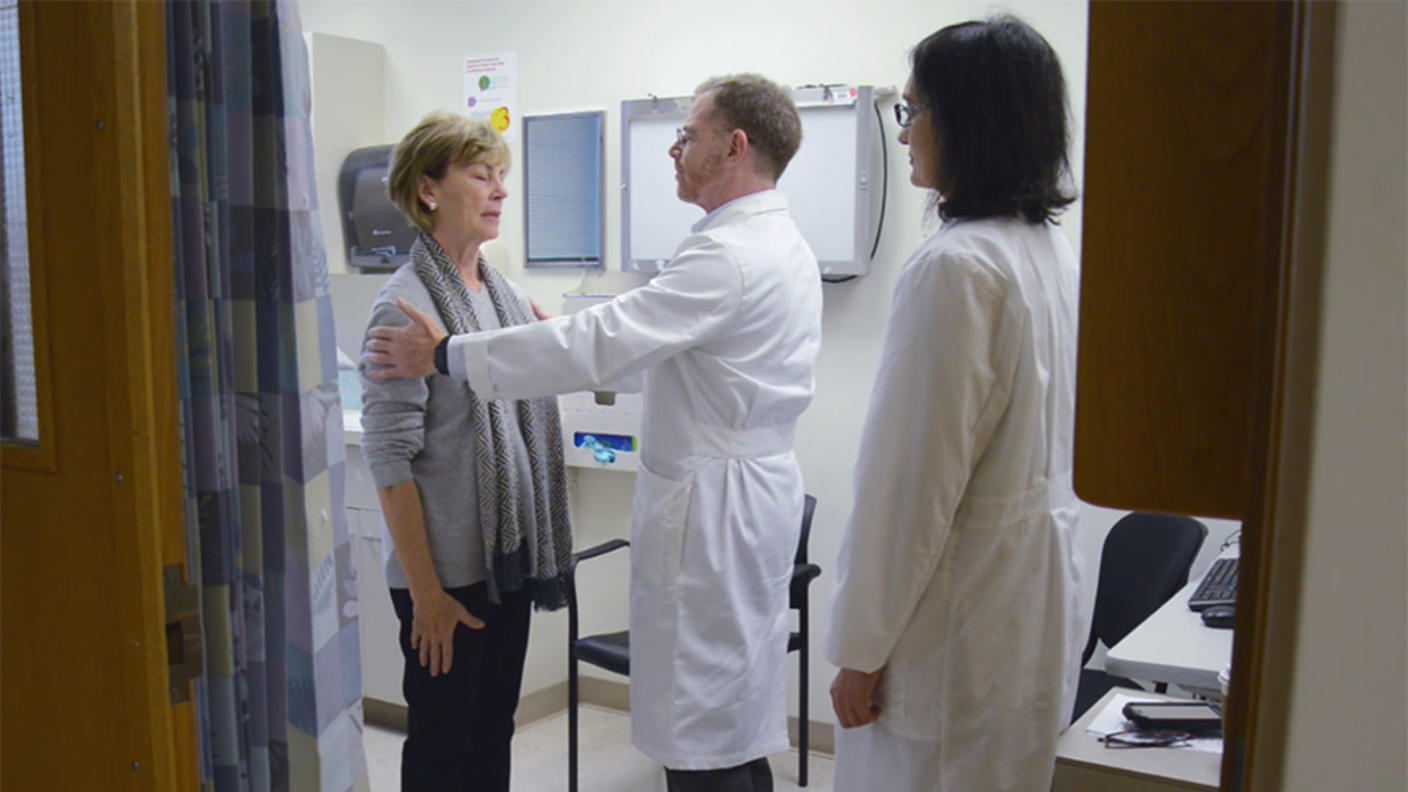The signs and symptoms of brain and spine tumors vary greatly and depend on the tumor location, size, and speed of growth. Symptoms can be caused by the location of the tumor—or from the tumor pressing on brain tissue or the spinal cord and nerves. Brain and spine tumor signs and symptoms can occur gradually over days or months, or they can happen suddenly.
Symptoms
Brain tumor symptoms may include:
- Morning headache or headache that goes away after vomiting
- Seizures
- Vision, hearing, and speech problems
- Loss of appetite
- Frequent nausea and vomiting
- Changes in personality, mood, ability to focus, or behavior
- Loss of balance and trouble walking
- Weakness
- Unusual sleepiness or change in activity level
Spinal cord tumor symptoms may include:
- Back pain or pain that spreads from the back toward the arms or legs
- A change in bowel habits or trouble urinating
- Weakness or numbness in the arms or legs
- Trouble walking
You should call your doctor if you have any symptoms that worry you. Your doctor will examine you, ask you questions, and perform a series of tests. The most common test to find out if you have a brain or spine tumor is a magnetic resonance imaging (MRI) scan. The scan can take detailed pictures of your brain or spine.
Diagnosis
If your test results show a tumor, it is important to find a doctor who is specially trained to treat your specific brain or spine tumor. Because brain and spine tumors are rare, very few centers that have doctors with that level of expertise. Use NCI-CONNECT’s network of health care professionals to find an experienced doctor near you and get a second opinion.
You should find a doctor you can trust and feel comfortable with. Your doctor’s expertise will help you get an accurate diagnosis, plan your treatment, and coordinate your care for a better chance of success.
To get an accurate diagnosis, you will need a biopsy. A biopsy is a surgical procedure to remove a piece of tumor tissue. The goal of surgery is to remove as much of your brain or spine tumor as possible to treat your cancer and relieve symptoms. It is critical to find a neurosurgeon with extensive experience to perform your surgery. A neuropathologist will then examine the tumor tissue to diagnose your tumor type.
Treatment
Your treating doctor or neuro-oncologist will use your diagnosis to determine the best course of treatment after surgery. Treatments may include chemotherapy, radiation, targeted therapies, or a clinical trial.
Finding out you have a rare brain or spine tumor can be overwhelming and challenging for you and your loved ones. To help you find expert care and make treatment decisions, use the resources below. The more you learn about your tumor, the more confident you will feel about making decisions.
Guiding Questions
- Questions to Ask Your Neurosurgeon
- Questions to Ask Your Doctor about Their Experience
- Questions to Ask Your Doctor about Your Diagnosis
- Questions to Ask Your Doctor about Support
Treatment Resources
- Types of Cancer Treatment
- Side Effects of Cancer Treatment
- Clinical Studies for CNS Tumors
- Complementary and Alternative Medicine



